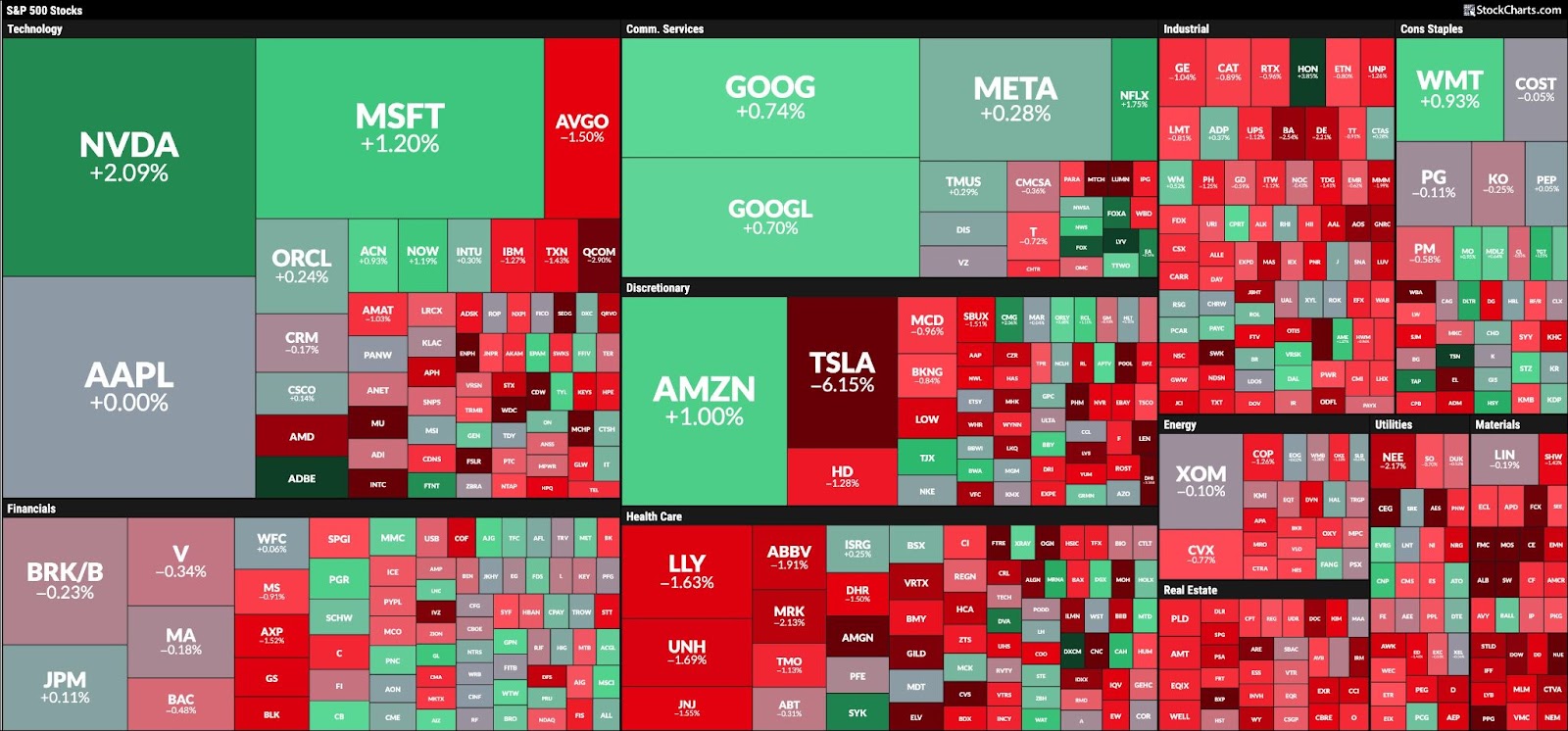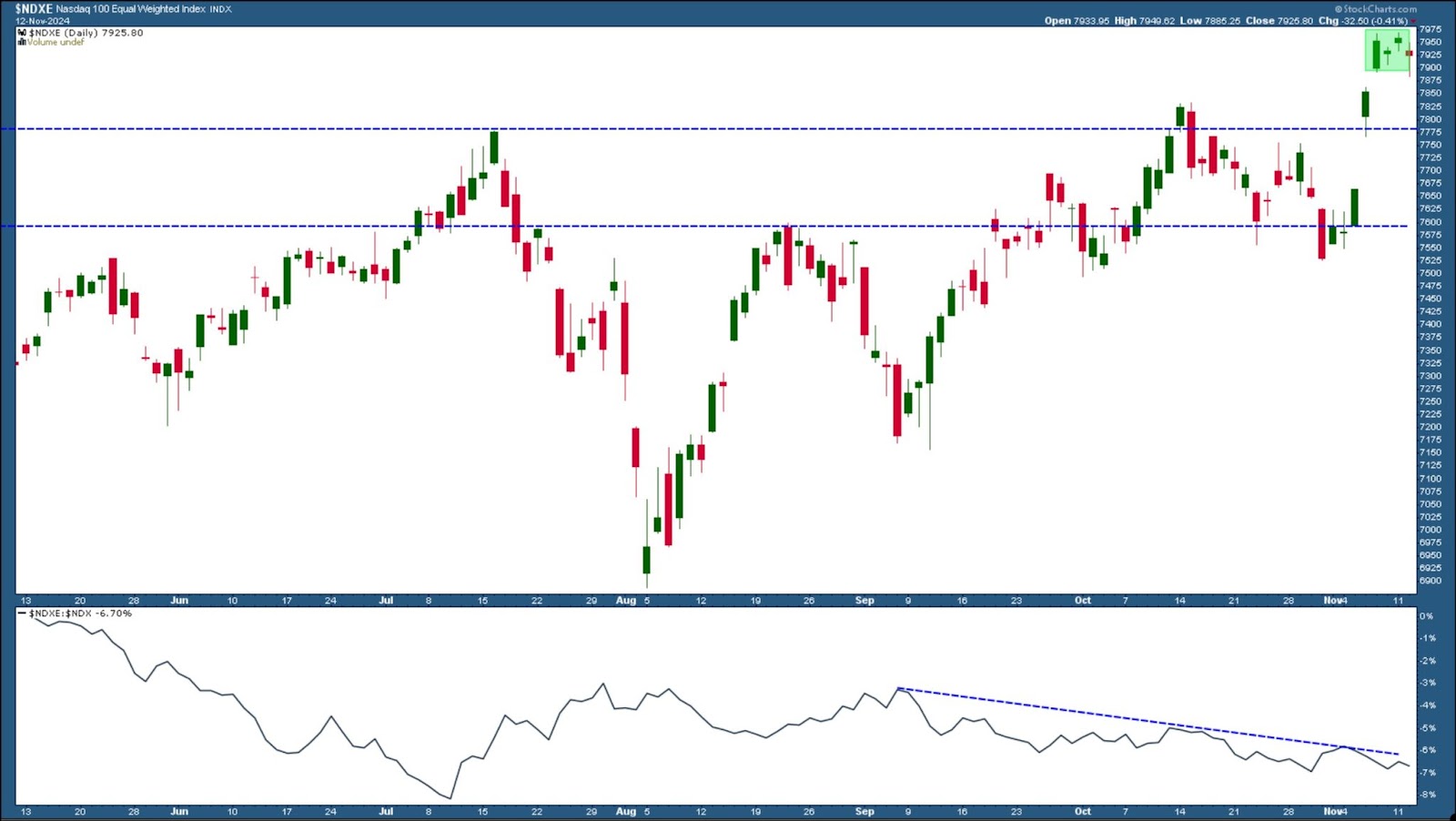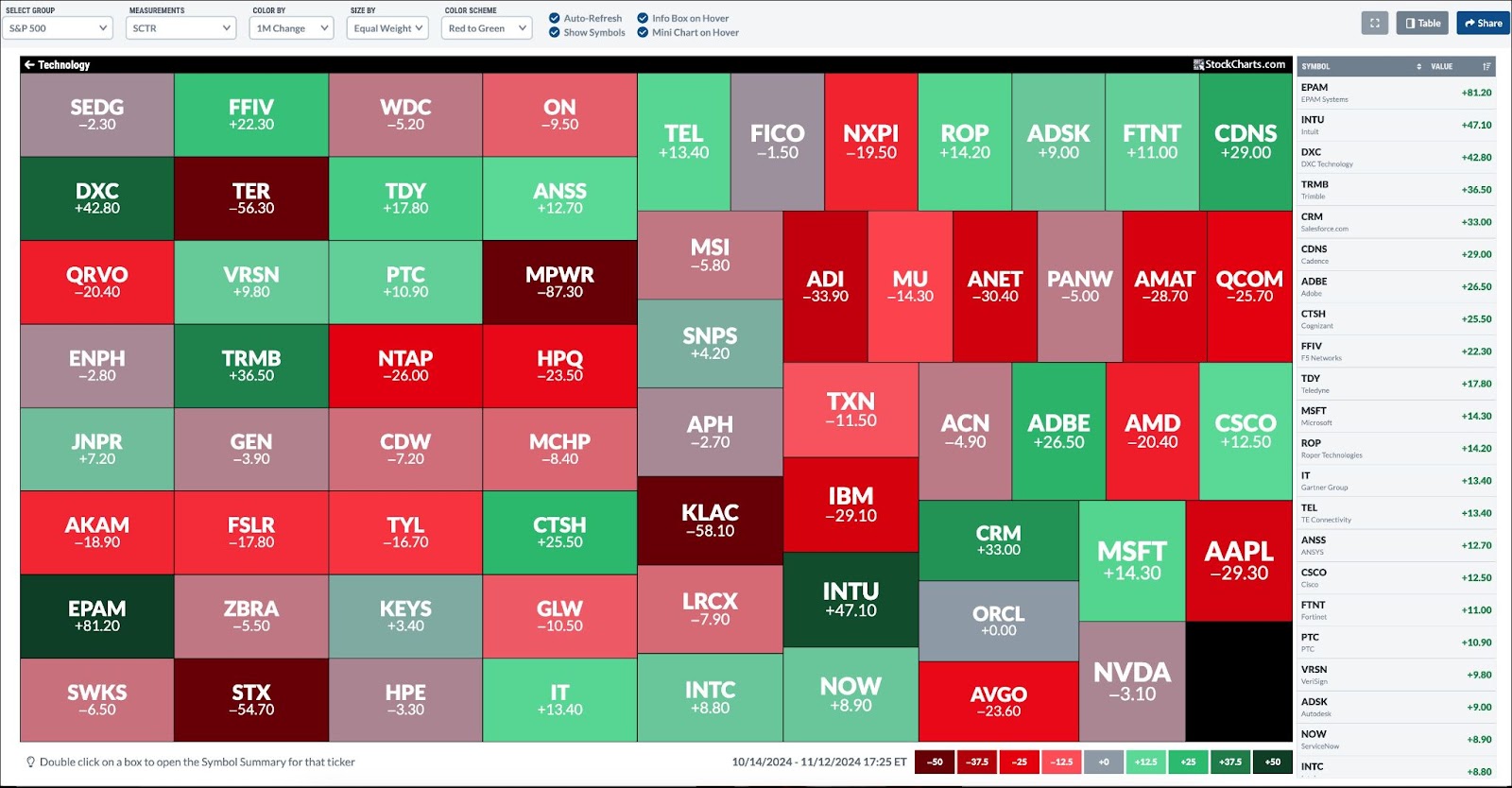
The post-election euphoria may have taken a breather on Tuesday, as the US stock market indexes closed lower. The tech-heavy Nasdaq Composite ($COMPQ) was only lower by 0.09%, whereas the S&P 600 Small Cap Index ($SML) was down the most—it closed lower by 1.54%.
A MarketCarpets Ride
On a day when the equity indexes closed lower, Tuesday’s StockCharts’ MarketCarpets shows that the downward move was mostly from a handful of sectors. Materials, Health Care, Real Estate, Utilities, Industrials, and Energy were the worst hit. Consumer Discretionary was also hit hard, except for Amazon.com, Inc. (AMZN), the highest cap-weighted stock in the sector.

FIGURE 1. MARKETCARPET FOR TUESDAY. Although a lot of sectors were a sea of red, the Mag 7 stocks closed higher.Image source: StockCharts.com. For educational purposes.
What stands out in the MarketCarpet is that the heavily weighted Mag 7 stocks, NVDA, MSFT, GOOGL, AMZN, META, and NFLX, closed higher for the day. AAPL was the exception—it closed unchanged. So, it’s unsurprising that Communication Services and Technology were Tuesday’s top performers.
Because most of the largest cap-weighted stocks closed higher, pulling up the Nasdaq 100 Equal-Weighted Index ($NDXE) chart made sense. The daily chart below shows that the index is still bullish despite Tuesday’s pullback, a decline of -0.41%. $NDXE broke above its July high post-election and is trading relatively close to its all-time high.

FIGURE 2. DAILY CHART OF NASDAQ 100 EQUAL WEIGHTED INDEX ($NDXE). Even though the large cap-weighted stocks performed well, the equal-weighted index is also bullish despite underperforming the Nasdaq 100 Index ($NDX).Chart source: StockCharts.com. For educational purposes only.
The last bar on the chart hit the November 7 (the last large body day) low and bounced back. Since the long body of November 7, there are now three short bodies, suggesting that market participants aren’t decisive in one way or another (see the candlestick bars within the green rectangle).
Note that $NDXE is underperforming relative to the Nasdaq 100 Index ($NDX), which isn’t unusual. What is interesting to see is that the relative performance is declining. This may mean that we could see a rotation into Technology and Communication Services as the year plays out.
Finding Stocks Using MarketCarpets
With many mega-cap tech stocks trading at elevated prices, does this mean the less sought-after smaller-cap tech stocks won’t see much upside movement? Not necessarily. One way to identify some of the smaller-weighted tech stocks is to look for technically strong stocks within the top-performing sector that are lower priced.
For example, expand the Technology sector in the MarketCarpet (click Technology header) and follow the path below:
Select SCTR from Measurements > 1M Change from Color By > Equal Weight from Size By.
I use the equal weight because it makes it easier to identify the different stocks. Note that this is just an example; you can use any parameters that meet your investing needs.
The screenshot below is the result of the above-mentioned selection criteria.

FIGURE 3. DIVING DEEPER INTO THE TECHNOLOGY SECTOR. Organizing the MarketCarpets by SCTR and equal weight makes it easier to identify the technically strong stocks.Image source: StockCharts.com. For educational purposes.
The table on the right displays the top performers based on your selected criteria. Mouse over the squares of those top performers and, from the thumbnail chart, identify the stocks that meet your price-per-share threshold. Then, double-click on the tile in the MarketCarpet to see the Symbol Summary page for your selected stock. From here, you can do a deeper analysis; if the stock has upside potential, add it to an appropriate ChartList. Set a price alert so you’re notified when the alert is met.
The bottom line: The stock market offers many opportunities. The key to taking advantage of those opportunities lies in your market analysis. The StockCharts MarketCarpets help you do a top-down analysis of the market to identify stocks or ETFs to trade.

Disclaimer: This blog is for educational purposes only and should not be construed as financial advice. The ideas and strategies should never be used without first assessing your own personal and financial situation, or without consulting a financial professional.

